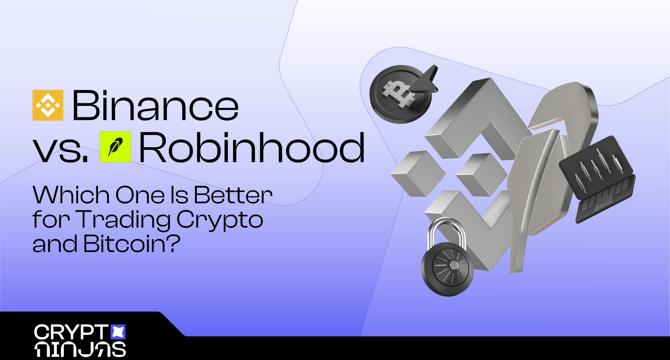Cryptoninjas
2M
453

Image Credit: Cryptoninjas
Binance vs. Robinhood: Which One Is Better for Trading Crypto and Bitcoin?
- Binance and Robinhood are popular investment platforms in the crypto industry offering a range of trading options for cryptocurrencies like Bitcoin and Ethereum.
- Binance supports a wide range of assets, advanced trading tools, and earning opportunities, catering to experienced traders, while Robinhood is beginner-friendly and offers commission-free trading.
- Binance serves a global user base, excluding the US, while Robinhood primarily caters to the US, UK, and EU.
- Binance lists over 350 cryptocurrencies, compared to Robinhood's 22+, making it ideal for those seeking a wider variety of assets.
- Binance offers advanced trading tools and features like futures, staking, and an NFT marketplace, while Robinhood provides simplicity and ease of use for casual investors.
- Binance has a tiered fee structure with discounts available, whereas Robinhood offers commission-free trading but earns through spread markups.
- Binance stands out with features like trading bots, Web3 wallet, and a referral program, while Robinhood offers tools like multi-asset brokerage and the Robinhood Gold Card.
- Both exchanges prioritize security; Binance features the SAFU fund and cold storage, while Robinhood employs 2FA and Bcrypt encryption.
- Customer support reviews show Binance as more responsive, with a structured system, compared to mixed reviews for Robinhood's service.
- Choosing between Binance and Robinhood depends on user preferences, with Binance suited for global users, frequent traders, and passive income seekers, while Robinhood is ideal for casual traders, stock investors, and simplicity.
Read Full Article
27 Likes
For uninterrupted reading, download the app